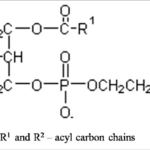Creatine for Women, Pregnancy, and Kids: Why It Matters
Most people think of creatine as a workout supplement, but did you know it’s crucial for pregnancy and child development too? While it’s well known for supporting muscle growth, creatine also plays a vital role in brain function, energy production, and fetal development. For women, particularly those who are pregnant or have certain genetic conditions like MTHFR and GAMT mutations, creatine may be even more important than commonly recognized.
Why Creatine Is Essential
Creatine acts as an energy buffer, ensuring efficient ATP production in muscles and the brain. During pregnancy, it supports fetal development by helping provide energy to the placenta. Despite its importance, some individuals struggle to produce enough creatine due to genetic variations, which may lead to complications.
MTHFR Mutation and Its Impact on Pregnancy
Approximately 40-50 percent of people carry at least one copy of the MTHFR mutation, which has been linked to fertility issues, miscarriages, and birth defects. MTHFR plays a key role in methylation, a process that supports creatine production. Since up to 90 percent of the body’s methylation activity is used to produce creatine and phosphatidylcholine, disruptions in this process can lead to low creatine levels. This can increase the risk of developmental delays in babies, particularly affecting speech and cognitive development.
Recognizing Creatine Deficiency in Children
Mild creatine deficiencies are often overlooked because standard blood tests do not accurately reflect brain creatine levels. However, certain symptoms may indicate a deficiency, including:
- Low muscle tone
- Speech delays
- Fatigue and low energy
- Developmental delays
If a child has an MTHFR or GAMT mutation, their ability to produce creatine may be significantly impaired, increasing the likelihood of these issues.
Who Should Get Tested?
Testing for creatine deficiency is recommended for children experiencing:
- Developmental delays
- Seizures
- Speech and language delays
- Behavioral or gastrointestinal issues
Since 2023, all newborns in the U.S. are screened for the GAMT gene, which is essential for creatine production. Early detection and intervention can help manage potential complications.
The Benefits of Creatine Supplementation
For pregnant women, creatine supplementation may support fetal growth and reduce the risk of premature birth.
For children, creatine can improve cognitive function, increase energy levels, and support muscle strength.
Creatine is a safe and effective supplement when used under medical guidance. To learn more, visit creatineinfo.org for additional resources.





